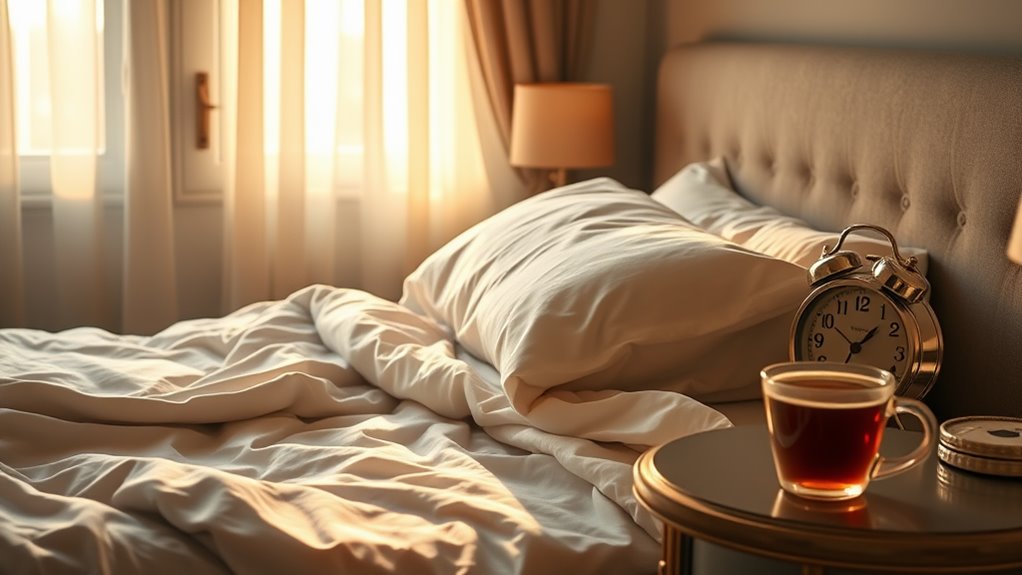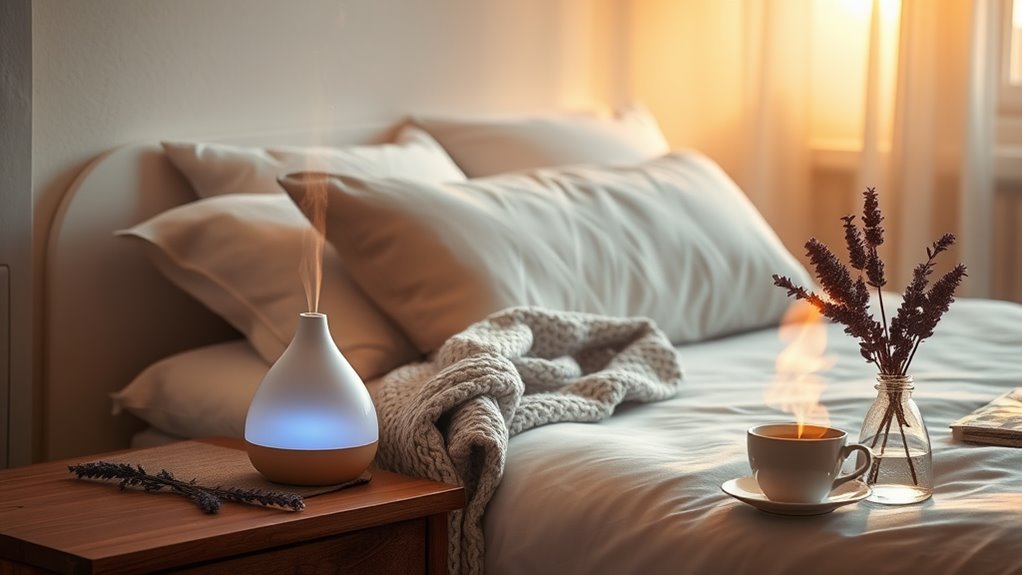The Sleep Mistake Everyone Makes and How to Fix It
The Impact of Electronic Devices on Sleep Quality
As you settle in for the night, the glow from your electronic devices might seem harmless, but it can considerably disrupt your sleep quality.
The blue light emitted can interfere with melatonin production, leading to insomnia and restless nights.
To improve your sleep, consider limiting screen time before bed and opting for relaxation techniques instead.
It’s essential to understand that the impact of screen time on your circadian rhythms can significantly affect your overall well-being.
Your body will thank you!
Understanding Your Natural Sleep Cycle
While you may not realize it, understanding your natural sleep cycle is essential for achieving restful nights. Your body follows a rhythm, cycling through various sleep stages every 90 minutes.
Pay attention to your own patterns, noting when you feel most alert or sleepy. Aligning your sleep schedule with these cycles can help you wake up refreshed and energized each day.
Common Nighttime Habits That Disrupt Sleep
Many nighttime habits can quietly sabotage your sleep quality, leaving you tossing and turning instead of resting peacefully.
Scrolling through your phone, consuming caffeine too late, or having irregular sleep schedules can all disrupt your body’s natural rhythm.
Additionally, eating heavy meals right before bed can make it hard to drift off.
Recognizing these habits is the first step toward better sleep. Tackling modern sleep disruptors can lead to improved rest and overall well-being.
Practical Solutions for Better Sleep Hygiene
Improving your sleep hygiene can transform restless nights into restful slumber.
Start by setting a consistent sleep schedule, going to bed and waking up at the same time daily.
Create a calming bedtime routine, limit screen time, and keep your bedroom dark and cool.
Avoid caffeine and heavy meals before bed to guarantee you drift off easily into a restorative sleep. Additionally, incorporating relaxation techniques such as deep breathing or meditation can further enhance your ability to fall asleep peacefully.




